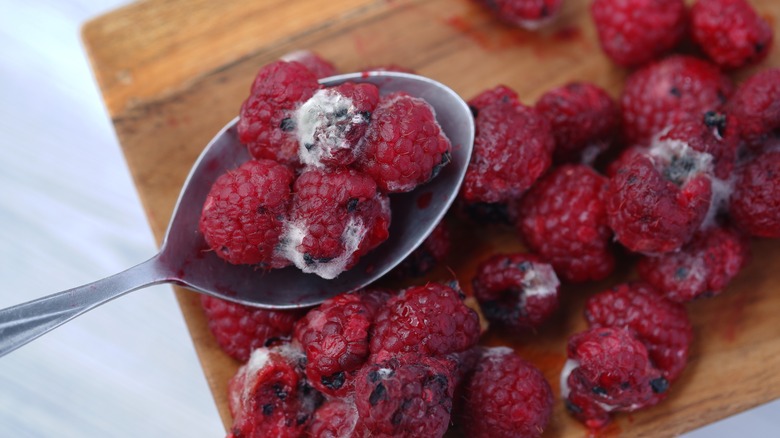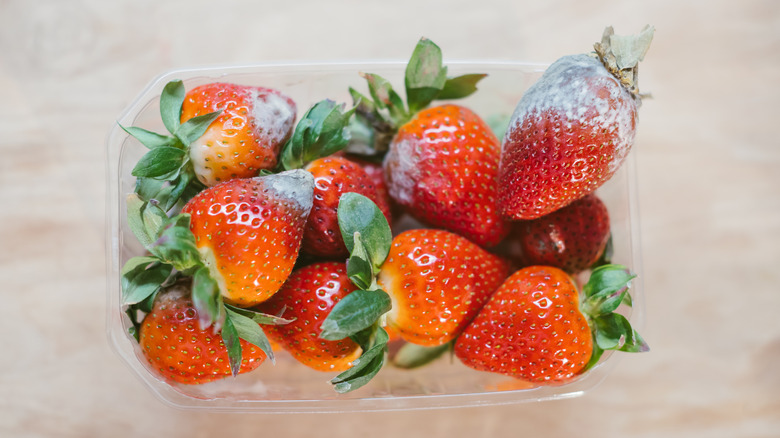What To Do With A Carton Of Berries When One Or Two Are Moldy
If you grew up with parents who held to the old adage, "When in doubt, throw it out," you might be quick to toss a whole box of strawberries if you see one speck of mold. But berries aren't cheap, especially if purchased out of season or from an organic store or farmer's market. So if you are wondering if you should chuck your berries, this might be a situation where you want to follow your gut.
"It's a guessing game," says Luke LaBorde, PhD, a professor of food science at Penn State University, in an interview with Bon Appétit. But if a berry in a mold-infected box is otherwise "fresh, plump, and not oozing or falling apart," it's probably fine to eat. Of course, if you take a bite of one and it tastes funky, it has probably been infected inside the berry, so spit it out and resign your haul to the compost bin.
When berries are infected, it's generally a white or gray strain of mold, a type of fungus that drops spores onto the moist skins of berries as they naturally release a kind of fruit mist. After all, berries are largely made of water, which is mold's favorite breeding ground. But the common types of mold that infect berries, like Botrytis, Phytophthora, and Fusarium, aren't generally toxic.
How to keep berries fresh
While berry mold isn't usually life-threatening, it "is a good indicator of spoilage in general, which means that other microbes such as bacteria may be present," Felicia Wu, PhD, a professor of food science and human nutrition, told Bon Appétit. The immunocompromised, or people with mold allergies, might not want to take the risk in the first place and should probably err on the side of caution.
So how do you save berries from a miserable fate? It all starts with developing common sense when it comes to shopping for berries. You want to check for visible mold or sliminess. If the berries are extra crushed and juicy on the bottom, they've probably been sitting around for a while, putting them closer to mold o'clock.
Once purchased, keep your berries in the fridge in an open container lined with a paper towel or dish towel to soak up excess moisture and keep them aerated. Mold spores can even live in your fridge, so be sure to clean your berries regularly to avoid spoilage.Running fresh berries through a light solution of vinegar and water will also help to preserve them. But the easiest thing to do to keep them from going bad is to eat them as quickly as possible. Not a terrible solution, after all.

